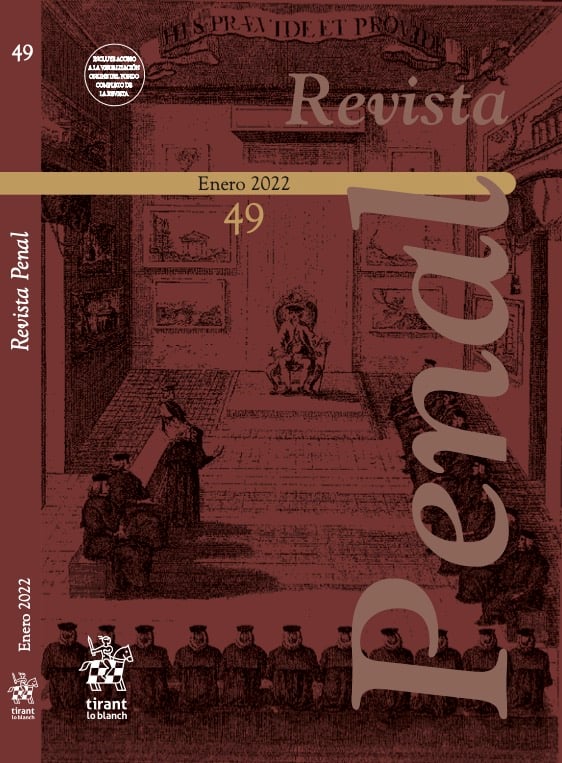La “sociedad del miedo” y el discurso terrorista. Algunas consideraciones sobre el delito de difusión de mensajes o consignas terroristas
Palabras clave:
Discurso terrorista, provocación, libertad de expresión, delitos de expresión, sociedad del miedoResumen
La evolución legislativa en relación con el fenómeno del terrorismo ha determinado la criminalización de comportamientos consistentes en meros actos de comunicación oral o escrito o discursos, consignas o expresiones, que incluso de forma indirecta pudieran determinar a alguno de sus potenciales destinatarios a la comisión de delitos de terrorismo. Es el delito de Provocación a la comisión de un delito de terrorismo en sus distintas modalidades que se encuentra regulado en el art. 579 CP. El problema radica en que su configuración concreta determina la innecesariedad de alguno de los apartados, y la ilegitimidad de otros por cuanto la mera exigencia de una incitación indirecta que potencialmente pudiera ser idónea para determinar a otros a cometer delitos de terrorismo, implicaría el castigo de ideas, discursos o pensamientos y la consecuente vulneración del derecho fundamental a la libertad de expresión. Será necesario, por tanto, delimitar los contornos tanto de las concretas figuras penales, como del contenido esencial del derecho fundamental.



